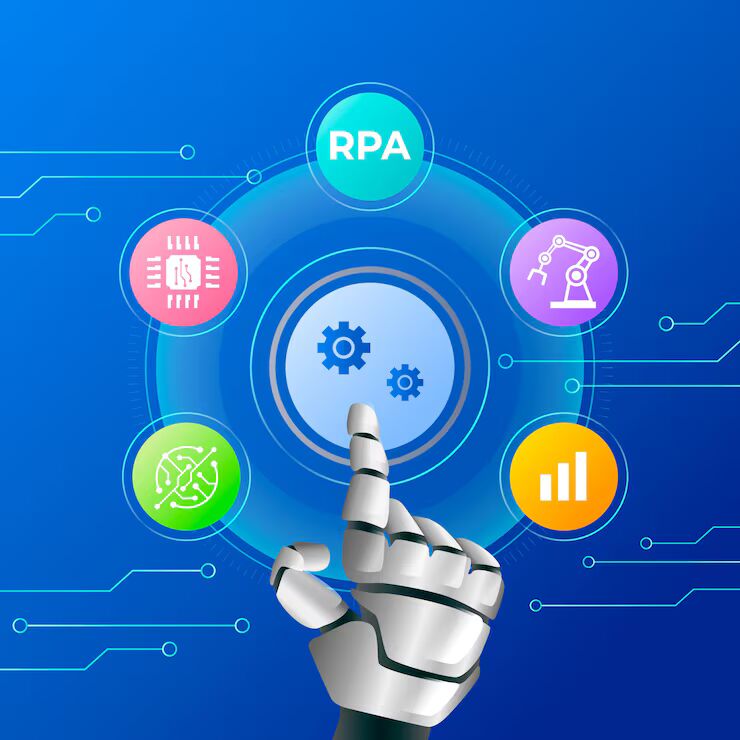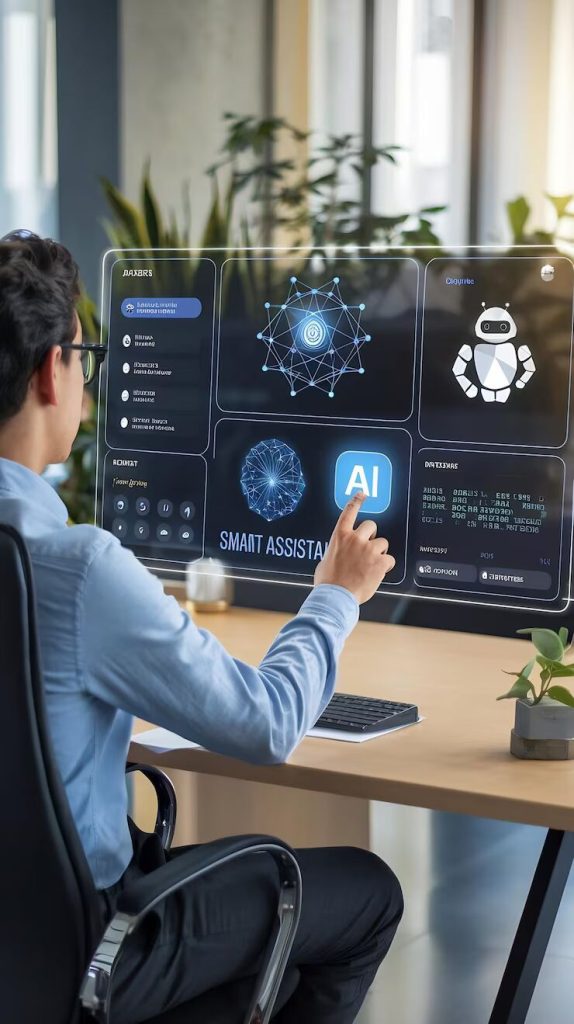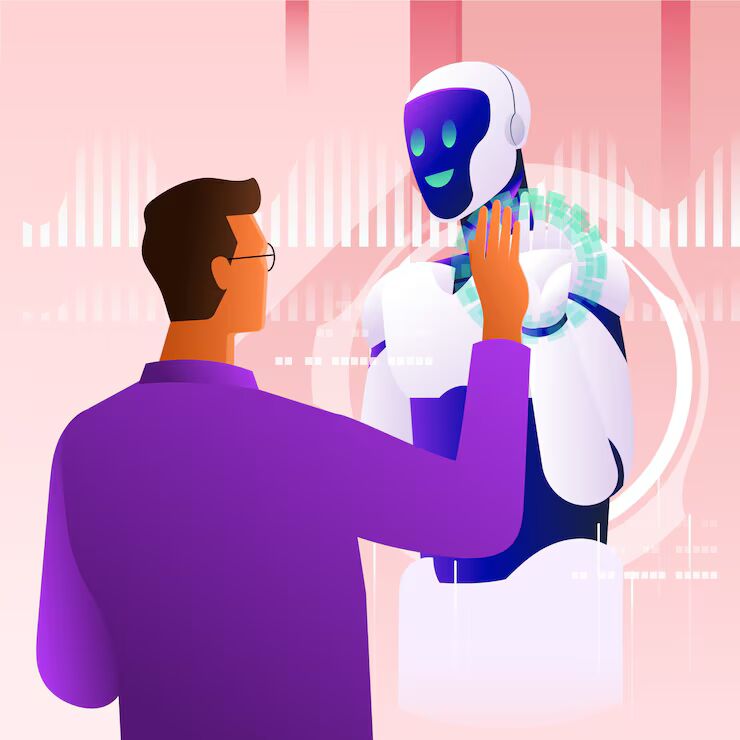AI in MVP Development: A New Era of Faster and Smarter Product Validation
In today’s digital world, startups and enterprises are under constant pressure to launch faster, validate smarter, and reduce risk. The traditional path of product development ,weeks of planning, months of coding, and endless user testing, no longer aligns with the rapid pace of innovation. This is where AI-driven MVP (Minimum Viable Product) development helps, marking the beginning of a new era in product strategy.
AI doesn’t just speed up development. It changes how we develop, test, and improve products. AI provides tools that help improve the MVP journey, whether you’re a product manager enhancing a feature or a founder evaluating a new business idea. In this blog we will understand how AI can help in MVP creation and the benefits.
Understanding MVP and Its Role in Product Development
Before getting into AI’s role, let’s understand what MVP is. An MVP is the basic version of a product that solves a core user problem. Early adopters can use it as it gives just enough features, and they can then give input for future improvements.
The MVP approach helps teams:
- Test assumptions quickly
- Minimize development costs
- Reduce time to market
- Gather user feedback early
- Avoid building unnecessary features
The MVP model is lean and quick by design, but it becomes much faster, smarter, and more efficient when AI is integrated.

Get Free Quote

How AI is Transforming MVP Development
AI plays an important role in nearly every stage of MVP development. From idea validation to release, here’s how AI changes the game:
1. Market Research & Idea Validation:
Market research generally involves days of data interpretation, competitor analysis, and surveying. Using AI technologies, you can now:
- Analyze thousands of user reviews in minutes
- Extract trends from social media platforms
- Identify emerging needs or pain points
- Study competitors’ customer feedback at scale
2. Prototyping with AI Design Tools:
It used to take days to design UI mockups and wireframe. Now, AI tools like Figma AI, and Builder.io automate much of this process.
These platforms:
- Convert text based descriptions into UI layouts
- Suggest design improvements using best practices
- Generate code snippets from design components
3. AI-Assisted Development and Code Generation:
Software development is one of the areas that has seen the most shifts. Tools like GitHub Copilot, and CodeWhisperer allow developers to:
- Auto complete code in real time
- Detect and fix bugs faster
- Generate full feature modules from natural language input
This doesn’t replace developers, it augments their productivity.
4. AI in No-Code and Low-Code MVP Platforms:
Non technical founders can also benefit from AI. Platforms like Bubble, Adalo, use AI to:
- Suggest app structures
- Auto-fill workflows
- Adjust UX based on predicted user behavior
Startups can launch MVPs with the help of these tools without having to write any code. Because of the lower entry barrier, founders can test ideas before spending money on development.


Benefits of Using AI in MVP Development
Let’s break down the major advantages of adding AI into the MVP process:
1. Speed:
AI automates a wide range of functions, including design, development, testing, and market research. As a result time to market drastically decreases.
2. Cost-Effectiveness:
By reducing manual labor, AI helps lower development and design costs. For bootstrapped startups, this is a game-changer.
3. Enhanced Accuracy:
AI tools analyze massive datasets without fatigue or bias. This leads to better insights and fewer human errors.
4. Scalability:
AI driven platforms grow with your product. Automation and data-driven insights allow logical scaling of an MVP.
5. Tech Democratization:
AI-powered no code and low code tools empower non tech founders to build and launch without expensive development teams.
Real World Examples of AI-Enhanced MVPs
Many successful startups start with AI-powered MVPs. Here are a few examples:
1. Copy.ai:
Started as a simple AI copywriting MVP using GPT-3. Within weeks, it gained popularity, raised funding, and rapidly scaled its product offerings.
2. Notion AI:
Notion integrated AI features in its MVP to help users summarize notes, write faster, and automate tasks, boosting engagement and retention from the starting.
3. Replika:
First launched as a chatbot MVP, Replika used NLP to mimic conversations. Early feedback helped improve the AI model, making it one of the top AI companion apps today.


Challenges to Watch Out For
Despite the benefits, using AI to generate MVPs has certain challenges:
- Overreliance on AI: Don’t forget proper user research just because AI gives you fast data. Always validate with real users.
- Data privacy concerns: Using AI means handling large volumes of user data. Make sure your MVP complies with local laws.
- Generic output: AI can sometimes create generic designs or code. Human overview is still necessary.
Frequently Asked Question
Q. How does AI help test an MVP faster?
Ans: AI quickly collects and studies how users interact with the product. This helps teams see what works, fix problems early, and make changes faster—before growing the product further.
Q. Can AI guess which features users will want?
Ans: Yes, AI analyzes which features people will find most important based on market trends and user behavior. It helps teams in avoiding creating features that aren’t useful.
Q. How does AI make user feedback easier to understand?
Ans: AI reads and processes feedback, reviews, and surveys using natural language tools. It identifies user emotions and highlights key issues, allowing teams to prioritize improvements effectively.
Q. How do I make an MVP with AI?
Ans: Using AI tools for idea validation and market research is the first step in creating an MVP using AI. Next, design, create code, and automate testing using AI-powered platforms.
Final Thoughts:
The process of creating digital products is changed with the combination of AI and MVP development, which makes it faster, smarter, and more accurate. Businesses may save money, test ideas quickly, and respond to user needs with AI’s help. This allows teams to focus on creating the most important aspects. For startups or any mobile app development company in the USA, using AI in MVP development is becoming a must to stay competitive. As technology grows, AI-powered MVPs will help create more user friendly, flexible, and future ready products.